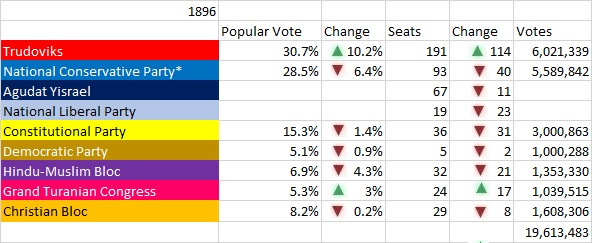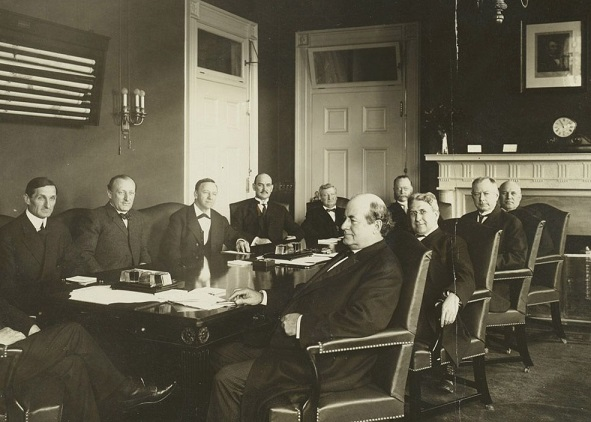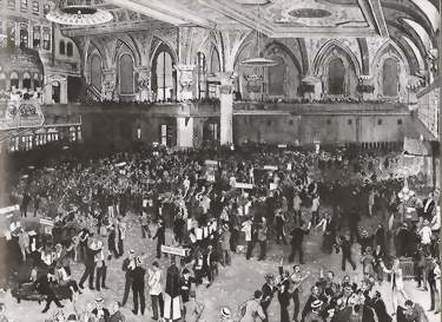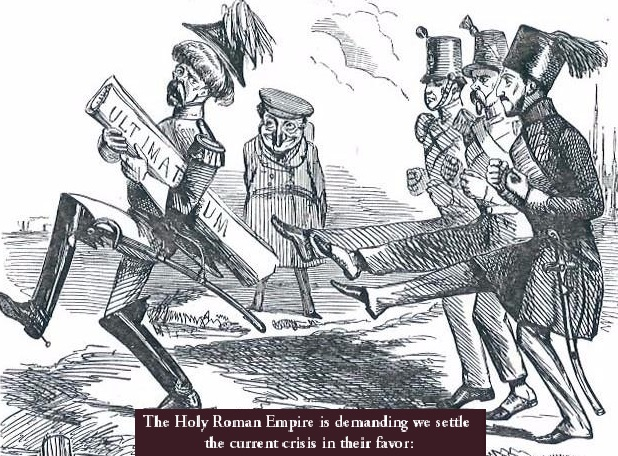1896-1897 – Into the Fire


After all the instability of the past three years, 1896 produced a surge election of historic significance. The Trudoviks, building momentum for years and reinvigorated by the confident leadership of Daniil Chernov, secured millions of new votes from across the empire. With Brusilov issue, that had animated the masses in 1893, assuming a more low-key role in this election – the Trudoviks were able to win over a sizeable number of poorer anti-Brusilovian voters from the Right on economic and class issues. Furthermore, having overtaken the Constitutionalists in the previous election, they squeezed the two liberal parties – winning half the former’s seats even as their vote only fell modestly. The reds also gained ground in Tatar and Christian areas – becoming the first national party to elect more than a handful of Hindu deputies. The only other party to put in a strong performance was the separatist Grand Turanian Congress – that more than doubled its vote and trebled its seat tally at the expense of the Hindu-Mulsim Block, taking advantage at Tatar rage after three years of conservative rule.

The success of the Trudoviks stunned both the Polish public and the world. Chernov was the first labour leader to be able to claim electoral victory in a major nation, and he now claimed his right to the premiership. Tsar Nikolai, fearful of allowing a rabble rousing labourist assume power, scrambled behind the scenes to cobble together an anti-socialist coalition between the Constitutionalists, the National Alliance and the minority parties. Yet political divides proved too deep, and the parliamentary arithmetic too stretched to find a workable arrangement. Despite their strong result, the Trudoviks themselves were far short of a majority – and this may have indirectly aided their cause, as it was clear that any labourite government would be forced to restrain the radical impulses of its base. Chernov invited both the Hindu-Muslim Block and Constitutionalists to provide ministers for his new government, while maintaining strong relations with the Democrats and Christian Block – providing a strong parliamentary majority. The new government’s focus was threefold – ending the economic crisis, abolishing the Brusilov Line, calming industrial tensions and establishing a new system of social protection.

The unexpectedly large Red tide, and the instability of the years leading up to 1896, had made liberal opinion far more amendable to political and social reform than ever before. This allowed the Chernov government to push forward with an ambitious reform agenda within months of its election as the Trudovik’s more moderate allies agreed upon the need for change. Just weeks after coming to power the government put forward legislation that sought to abolish the Brusilov Line – creating new constituencies covering all Polish territories in Eurasia. The Bill passed with a massive majority. Only recently humbled at the polls, the Right could do little but protest from the sidelines.
With victory in the great cause celebre of the Polish Left achieved, the government proceeded to provide its working class base with a slew of social reforms benefitting the poor. A system of national pensions for those over 70 without family support was introduced and payments for the unemployed to save them from abject poverty – a particularly pertinent policy at a time when many cities were swamped with the jobless poor, while education spending was increased.
At the heart of the Trudoviks’ pitch to the electorate in 1896 had been their promise that they would be able to bring the industrial unrest that had ravaged the country to an end. The hoped to achieve this by firstly legislating in favour of a number of key trade unionist causes – setting a legally enforceable 10-hour limit on the working day as well as a minimum wage. More importantly, the government offered itself as a mediator in labour disputes – seeking to find compromises suitable to both capital and labour. The ability of the Polish state to carry out this role in practise was far more limited than the government’s ambitions – with the state only realistically able to involve itself in the most high-profile strikes. Nonetheless, the tone emanating from Kiev acted to embolden the unions and worry capital.

The government’s response to the ongoing economic crisis was less certain. In the immediate aftermath of the Trudoviks’ 1896 victory, investors in the Polish economy were clearly spooked – fearing an assault on the monied classes and disorder under this first red administration. This flight of capital put strain on the nation’s financial institutions and strangled lending – suppressing the first signs of a wider economic recovery that had already been starting to show in the last year of the National Alliance government. In response, the government attempted to calm the markets by emphasising its moderation and economic competence – shunning the tax rises and heavy state intervention demanded by the left, and instead giving Constitutionalist ministers prominence in the financial ministry. In one exception from this largely liberal economic approach, a programme of state-backed loans and subsidies were offered to struggling industries in an effort to prevent another significant increase in unemployment. The effects of these policies were mixed. Another sizeable industrial contraction was averted, yet the Chernov government clearly failed to definitively end the economic crisis and return Poland to a period of growth during its first year in office.

By 1896 geopolitical tensions in Europe had been boiling for years. The incredible territorial expansion of the Holy Roman Empire in both Europe and Africa, its arms race with Poland, and Kiev’s efforts to amass an anti-German coalition across Europe had created two heavily armed camps poised for conflict. Into this heady mix, ethnic nationalism was fast developing into one of the most powerful political forces in Europe – creating no end of trouble for the continent’s two foremost multi-ethnic empires in Poland and the Holy Roman Empire.
The nation at the heart of the troubles that began in the Autumn of 1896, were the French. For centuries the people of France had endured foreign rule – by Italians, Andalucians, Skots and Germans. Through their long history they had never been united under a single polity and had more often identified themselves with their local areas rather than a shared Frankish nation. Pan-French nationalism had only truly taken hold during the 19th century, solidified by the hardships endured by the Gallic people in the face of rampaging foreign armies.
During the past half century, much of their homeland had been conquered by the Holy Roman Empire – leaving behind a number of territorial anomalies, most notably a Skottish exclave in and around the great city of Paris that was totally surrounded by Imperial territory. The Germans were particularly disliked rulers amongst the French, offering less autonomy than their predecessors had and pushing a strong Germanic cultural agenda throughout the Empire. As a result, anti-Imperial French nationalist groups were endemic through Imperial France. Many of these groups used Paris, where the Skots offered a comparatively liberal regime, as their base – the city acting as a beacon from which French nationalist ideas could spread, where dissidents could find shelter and smugglers a safe haven.

After a known terrorist, who had murdered the Holy Roman governor of Brittany, found refuge in Paris and began to openly engage in political activity, the Germans had had enough. Vienna delivered an ultimatum to the Skots, demanding that they give Imperial police jurisdiction to enter the city and arrest those who had committed crimes in the Empire. With the Skots holding firm against this transgression, supported by Poland’s staunch support of its ally, a tense standoff ensued through the Autumn and Winter months of 1896 as diplomats criss-crossed the continent and the military machines of Poland and the Empire readied themselves for action. In late November the Germans escalated the situation by cutting Paris off from the outside world – leaving millions at risk of food shortages and even starvation. After the hard Christmas of 1896, rather than back down to Imperial demands, the Skots attempted to force the issue by sending a number of supply vessels accompanied by gunboats up the Seine River towards the Parisian territory in January 1897. Unwilling to countenance a violation of the blockade, Germans forces in the area attacked these vessels and prevented them from reaching Paris – killing several hundred.

This ‘Massacre of the Seine’ proved to be the final trigger for war. After the Tsar’s envoys provided quiet assurance that they would support the Skots in any action they took, Skotland declared war upon the Holy Roman Empire on January 23rd 1897. Although many Trudoviks in Poland were askance at the prospect of leading their nation into a great European cataclysm just as they embarked on their programme of internal reforms, the majority backed Prime Minister Chernov in asserting that Poland had an obligation to its allies and the wider European community to face down German imperialism. As such, Poland joined the Skots in declaring war on January 25th, by the end of the month they had been joined by Denmark, Pannonia, Crusader Anatolia and Israel. The First World War had begun.
- 7








